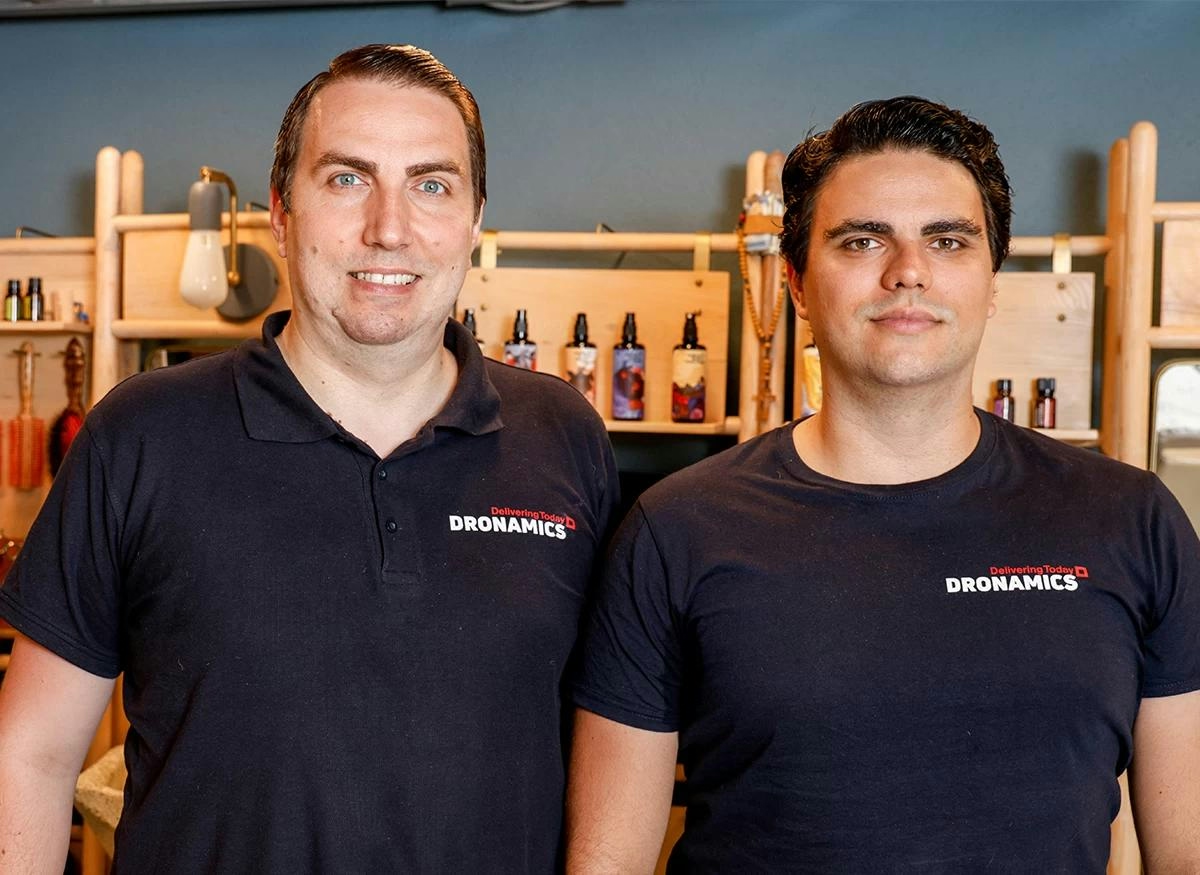AeroGenie — Your Intelligent Copilot.
Trending
Categories
Inside Dronamics: Svilen Rangelov on the Future of Drone Control

Inside Dronamics: Svilen Rangelov on the Future of Drone Control
In 2014, Bulgarian brothers Svilen and Konstantin Rangelov co-founded Dronamics, a cargo drone airline, and made a personal commitment to not shave their beards until their full-scale drone, the “Black Swan,” successfully took flight. This milestone was reached in 2023, marking a significant achievement for the company. By 2024, Dronamics was preparing to commence commercial operations, supported by a €10 million investment from the European Innovation Council (EIC) alongside an earlier €2.5 million grant. Less than a year later, the company secured up to €30 million in equity funding through the EIC’s Strategic Technologies for Europe Platform (STEP), highlighting its growing prominence in the advanced air mobility sector.
In a recent interview, Svilen Rangelov, Co-Founder and CEO of Dronamics, outlined the company’s commercial flight plans, regulatory progress, and global ambitions, while also addressing the broader challenges and opportunities shaping the future of drone control.
Shifting Takeoff Priorities: From Greece to Bulgaria
Dronamics initially intended to launch its commercial drone flights in Greece. However, evolving operational priorities have led to a revised timeline. Rangelov confirmed that while flights remain planned for Greece, the company is now more likely to begin commercial operations in Bulgaria later this year. Expansion into Greece remains a key objective, alongside potential launches in other countries such as Portugal, where government and stakeholder support is notably strong.
Navigating a Competitive and Evolving Market
The cargo and agricultural drone markets are rapidly advancing, with major industry players like Aerialtronics, Flytrex, and AeroVironment driving innovation. Despite this progress, Rangelov acknowledged significant challenges, particularly in regulatory compliance and integration with existing agricultural practices. He emphasized that regulatory frameworks are still adapting to keep pace with technological developments, underscoring the importance of robust risk management and policy innovation. France’s emerging agriculture insurance sector was cited as an example of the kind of comprehensive policy evolution needed as drones become increasingly embedded in commercial operations.
In response to these challenges, competitors are intensifying investments in research and development, forging strategic partnerships, and pursuing collaborations to maintain their competitive edge. Rangelov stressed that Dronamics is similarly focused on leveraging dual-use technology and cultivating global partnerships to navigate this dynamic landscape.
Global Vision and Regulatory Challenges
While Dronamics’ immediate focus remains on Europe, the company harbors broader global ambitions. Rangelov revealed plans to launch operations in the Middle East next year, targeting countries such as Saudi Arabia and the United Arab Emirates for expansion and manufacturing. The United States market is also under consideration, particularly as regulatory momentum builds. He noted that recent executive orders in the U.S. have accelerated the Federal Aviation Administration’s (FAA) approval process for beyond visual line-of-sight flights, opening new opportunities for the company.
The Strategic Role of European Investment
Rangelov highlighted the critical importance of the STEP initiative in preserving Europe’s technological sovereignty. He argued that the program demonstrates the European Union’s recognition of the need to maintain control over its airspace amid growing global competition. With recent insolvencies and project cancellations threatening the continent’s advanced air mobility industry, he stressed the urgency of strategic investment. Rangelov warned that once American companies receive FAA certification, they are likely to enter the European market, making it imperative for Europe to act swiftly to remain competitive.
As Dronamics prepares for its next phase, the company stands at the intersection of innovation, regulation, and global competition, poised to influence the future of drone control both within Europe and internationally.

Emirates Unveils Cabin Design for New Boeing 777X

Eighteen Years On, the Airbus A380 Remains Central to a $34 Billion Airline

How a boom in luxury airline seats is slowing down jet deliveries

Navitaire Outage Attributed to Planned Maintenance

DigiYatra Debuts Outside Aviation at India AI Impact Summit

Vietnam Orders Strengthen Boeing’s Commercial Outlook

Airbus Signals Uncertainty Over Future A400M Orders

JobsOhio Awards $2 Million Grant to Hartzell Propeller for Innovation Center

Collins Aerospace Tests Sidekick Autonomy Software on YFQ-42A for U.S. Air Force CCA Program

How the Airbus A350-1000 Compares to the Boeing 777
